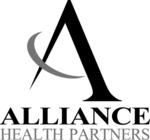The low back can withstand tremendous forces without injury. However, if the low back is out of adjustment or has weakened supporting muscles, something as simple as taking a bag of groceries can cause a low back injury. Eighty percent of people suffer from back pain at some point in their lives. Back
Read moreALLIANCE HEALTH PARTNERS
OPTIMA REHABILITATION
Colorado Springs MASSAGE
It has been documented that thoughts and emotions have a powerful influence over our physical health. There was an interesting study conducted at UCLA in the early 1990s where 14 professional actors were recruited to study the effects of emotion on the immune system. During the study, the actors were told which mood state they would be experiencing.
They then read the appropriate scenario, which was about 100 words long, and were told to create and experience a realistic mood by developing the scene and verbally and behaviorally acting it out while seated. Actors were encouraged to use their own personal memories to intensify the experience. Once the actors were in a particular emotional state, the researchers drew blood to measure any physical changes that may be associated with particular emotional states. What they found surprised everyone. Simply by shifting from one emotional state to another, the actors could stimulate or suppress their immune function. Subsequent studies have measured all kinds of physical changes that result from emotional states, such as changes in hormone levels, brain chemistry, blood sugar levels, even the ability to heal properly. In fact, the mind-body connection is so strong that an entire field of science has emerged called psychoneuroimmunology.
More and more scientific studies are published on a daily basis proving the idea that thoughts and emotions have a powerful influence over our physical health. This is one of the reasons why people are much more likely to get sick during job changes, holidays and other stressful times; or why people who are depressed have a much higher risk of developing cancer. How can emotions affect our immunity or resistance to disease? Research shows that the brain can release hormones and other chemicals that affect white blood cells and other parts of the immune system. Though the chemicals also have other functions, they are a link between our thoughts and our ability to resist diseases.For example, when people react to stresses with fear, their brains send a "danger" message to the body. Hormones are released to raise blood pressure and prepare muscles for quick action, as if to fight or flee from danger. The stress hormones also depress the disease-resistance system, and over time, can damage the brain, heart and digestive tract.Thoughts can cause physical abnormalities such as ulcers, indigestion, nervousness and high blood pressure. Thoughts can also depress the immune system, which leads to a wide variety of diseases. Whether a person experiences poor health, and how soon, depends on that person's heredity, environment, diet, and behavior.
An Australian study in the late 1970s showed that when one spouse dies, the other experiences a weakened immune system. This helps explain why grieving spouses have more diseases and a higher death rate than others of similar age. Other studies have shown that heart patients who are depressed have more heart problems than happier heart patients; depression was a better predictor of problems than physical measurements were.
Cancer is more common in people who suffer a major emotional loss, repress anger and feel helpless. Cancer patients who express their emotions rather than denying them seem to recover more often. The link between emotion and cancer is so strong that some psychological tests are better predictors of cancer than physical exams are. This does not mean that everyone who has cancer or some other disease has simply thought it upon himself. There are many factors involved in disease; even the best attitude is not going to prevent ill effects from genetic malfunctions and some chemical and biological hazards. A new study shows physical proof how one of those aspects - a strong and happy marriage - can be a boon to your health. According to the study, physical wounds take much longer to heal in marriages marred by hostility and conflict than those in which couples build a more pleasurable home life.
As our thoughts and emotions have such a powerful influence over our physical health, we must take proactive steps to regain our health through healthy thinking, relaxation, and positive affirmations. Explore this section for more on how to calm your mind and improve your health.
-
Back Pain-Lower
Category: Common Conditions Treated, Back and Shoulder Pain
-
Heat Therapy
Category: Therapies & Techniques, Therapies
Most people have used heat at one time to sooth normal aches and pains — such as the use of a hot bath, a heating pad or even an old-fashioned water bottle. Even today, these types of heat therapy play an important role in chiropractic practice to increase circulation and relax the muscles. At the
Read more -
Cold Therapy
Category: Therapies & Techniques, Therapies
Applying ice after an injury is a common method for reducing pain and swelling. It is especially effective for athletes, who often experience sudden, painful injuries. This type of cold therapy, also known as cryotherapy, is used by chiropractors for the same purposes. Types of Cold Therapy Many types
Read more -
Manual Technique
Category: Therapies & Techniques, Techniques
Manual therapy, also known as manipulative therapy, is a physical treatment primarily used by chiropractors to treat musculoskeletal pain and debility. How Does Manual Therapy Work? This form of physical therapy takes a hands-on approach rather than using devices or machines. When a chiropractor uses
Read more -
Drop-Table Technique
Category: Therapies & Techniques, Techniques
Forceful spinal manipulation is not always necessary to treat conditions of the lower back, mid-back and neck. Gentle chiropractic treatment, such as drop table techniques, involves less powerful spinal maneuvering and slower, low-velocity movements that allow the affected joint to stay within its passive
Read more -
Active Release Techniques
Category: Therapies & Techniques, Techniques
When there is damage to muscles and other soft tissues including pulls, tears, or not being able to get enough oxygen (hypoxia), it can result in the body producing rough, thick scar tissue in the affected area. Scar tissue restricts the tissues from moving freely because they bind them and tie them
Read more -
Myths & Facts
Category: About Chiropractic Care, How Does it Work
Myth #1 - Chiropractors are not real doctors. A chiropractic college grants a D.C. or Doctorate of Chiropractic degree. Chiropractors are licensed as health care providers in every U.S. state and dozens of countries around the world. While the competition for acceptance in chiropractic school is not
Read more -
Living With Pain
Category: Newsletter Library
Chronic disease is a major problem in U.S. health care. More than one-third of Americans have one or more chronic diseases, including heart disease, diabetes, and cancer. The personal costs to patients and families are often severe, daily, and ongoing. The economic costs to society are almost $1 trillion
Read more -
Chiropractic Care for Short-Term and Long-Term Health
Category: Newsletter Library, Healthy Tips
Chiropractic care is the one form of health care that keeps on giving. Chiropractic care certainly helps people to recover from short-term health problems, but this powerful method of healing also helps people stay well and assists in preventing new problems from developing. Your chiropractor treats
Read more -
Frequent Flying
Category: Newsletter Library, Healthy Tips
Most of us, at one time or another, have traveled for business. Some of us do this fairly often, and when we travel for business, we're usually getting where we're going by plane. Air travel used to be quick and easy. But lately, within the last ten years, maybe not so much. By now, we're used to long
Read more -
Getting a Good Night's Sleep
Category: Newsletter Library, Healthy Tips
Americans spend more than $2 billion each year on sleep-aiding medications. Sleep is supposed to be a natural process. What's going on? There are many issues in the way of getting a good night's sleep. Daily stresses - work problems, financial difficulties, family challenges - can all keep a person up
Read more -
Here Come the Holidays!
Category: Newsletter Library, Healthy Tips
The holidays are here - Chanukah, Christmas, and Kwanzaa. Lots of family get-togethers, lots of fellowship and fun, and usually lots of food. Family dinners, parties, family breakfasts, more parties. Is there any way to avoid gaining five or ten unwanted pounds during the extended holiday season? Thanksgiving
Read more -
How To Have More Energy
Category: Newsletter Library, Healthy Tips
So far 2009 has been a rollercoaster ride - many great new developments. And yet the worldwide economic turmoil has been very, very rough on most people. Stress levels have been sky high, and stress saps a person's energy. Even the U.S. Department of Health and Human Services is concerned. In March 2009
Read more -
Lifestyle Matters
Category: Newsletter Library, Healthy Tips
The fitness boom was launched in America in the early 1980s by a small group of celebrities, including Jane Fonda, who recognized the importance of exercise for long-term health and well-being. Although their methods were flawed, their vision was important. Over the past 30 years the notion of fitness
Read more -
New Year's Resolution - Find Out Whether Chiropractic Care Is Right for You
Category: Newsletter Library, Healthy Tips
It's early January - a New Year - and you've decided this is going to be the year you actually fulfill your list of New Year's resolutions. This is going to be the year you finally start taking good care of yourself. You're going to exercise regularly, you're going to lose weight, and you're going to
Read more -
Planning for Success
Category: Newsletter Library, Healthy Tips
Every successful athlete knows that a plan is necessary to reach the highest levels of performance. How many practice sessions are needed each week, what kinds of things to work on during each session, how much rest to get, how much and what kinds of food to eat, how much water to drink - these are some
Read more
Locations
Find us on the map
3920 N Union Blvd, Ste 160
Colorado Springs, CO 80907, US
Office Hours
Our Regular Schedule
7:00 am - 7:00 pm
7:00 am - 7:00 pm
7:00 am - 7:00 pm
7:00 am - 4:00 pm
7:00 am - 6:00 pm
8:00 am - 12:00 pm
Closed

